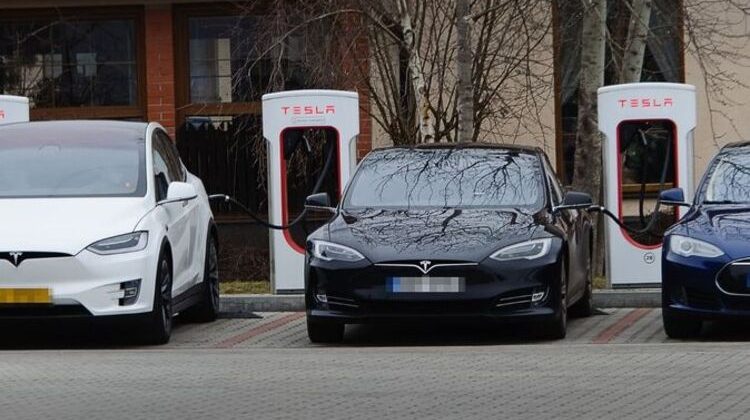Tesla: Elon Musk details plans to create humanoid robot
We use your sign-up to provide content in ways you’ve consented to and to improve our understanding of you. This may include adverts from us and 3rd parties based on our understanding. You can unsubscribe at any time. More info
The National Highway Traffic Safety Administration (NHTSA) is looking at the issue being called ‘phantom braking’ causing cars including the Model 3 and Model Y to suddenly apply the brakes when travelling at high speed on American motorways. It has received 354 complaints about the issue over the past nine months alone.
Drivers say the issue occurs using the Autopilot driver assistance system, according to the BBC.
The feature gives the vehicle control over elements of braking and steering when driving, although it cannot entirely replace a human driver.
Tesla recommends drivers remain vigilant and supervise their vehicle, noting the Autopilot ADAS system “does not make the vehicle autonomous”.
The phantom braking adds to two Tesla issues currently being investigated by the NHTSA.

In December last year the company had to disable the feature that allows drivers to play video games on the giant centre screen in its cars.
Known as “Passenger Play” that was due to an open investigation covering around 580,000 Teslas.
And earlier last summer the NHTSA began to investigate the Autopilot system and whether it had any part in 11 different crashes involving Teslas.
That investigation covers 765,000 cars and both issues have led to recalls.
DON’T MISS
Massive number plate changes to come into effect next month [INSIGHT]
Elderly drivers slam new EU speed limiters just months before launch [COMMENT]
Driver furious after being hit with ‘ridiculous’ parking fine [SHOCKING]
While the agency’s Office of Defects Investigation (ODI) has begun a “preliminary evaluation” into Tesla over the new complaints, it hasn’t yet issued a recall and says there have been no crashes, injuries or fatalities as a result of the incidents.
The report said: “The complaints allege that while utilising the ADAS features including adaptive cruise control, the vehicle unexpectedly applies its brakes while driving at highway speeds.
“Complainants report that the rapid deceleration can occur without warning, at random, and often repeatedly in a single drive cycle.
“ODI is opening this preliminary evaluation to determine the scope and severity of the potential problem and to fully assess the potential safety-related issues.”

Customer complaints made to the NHTSA are publicly available on its website in order to allow people to compare vehicle safety.
One, regarding the Tesla Model 3, reads: “On several occasions since June 2021, my Tesla Model 3 has suddenly braked hard on its own while the Autopilot cruise control function was engaged (phantom braking).
“There has been no apparent reason for the sudden braking incidents, and they have happened at highway speeds.
When I reported these incidents to my Tesla dealer, I was told that Tesla was aware of this problem with Tesla Model 3 vehicles, and that Tesla was working on finding a solution.
“Yet the problem has continued, and occurred again as recently as yesterday.”

While the company doesn’t usually respond to requests for comment, CEO Elon Musk has defended the safety of the cars, tweeting last year:
“Essentially, passive Autopilot (car intervenes only when crash probability is high) cuts crashes in half.
“Active Autopilot (car is driving itself) cuts crashes in half again.
“Doesn’t mean there are no crashes, but, on balance, Autopilot is unequivocally safer.”
Source: Read Full Article
